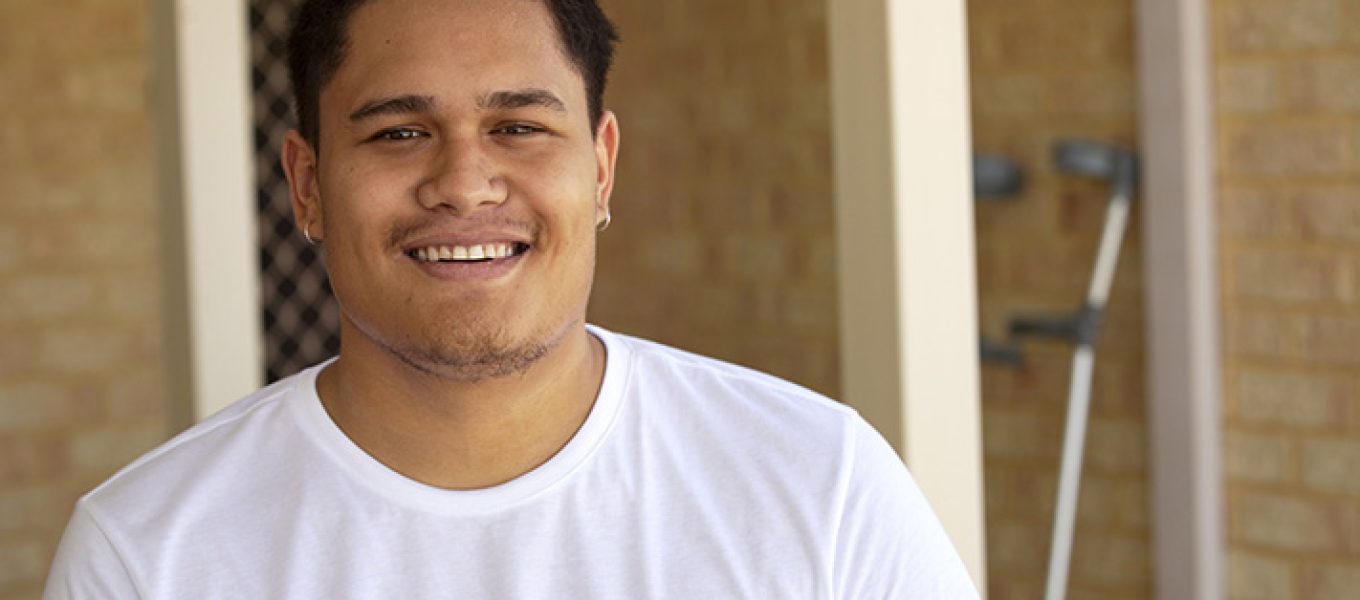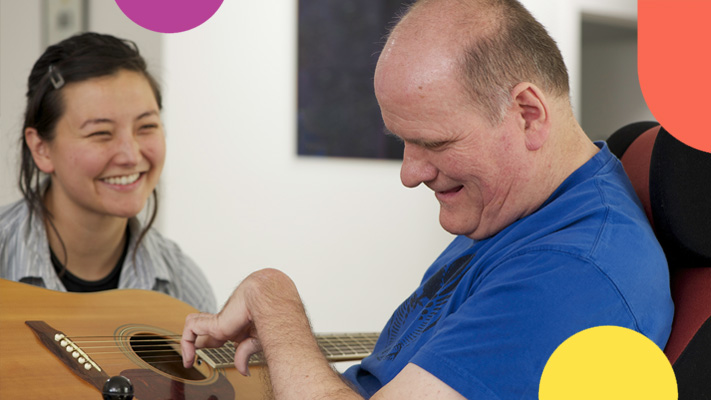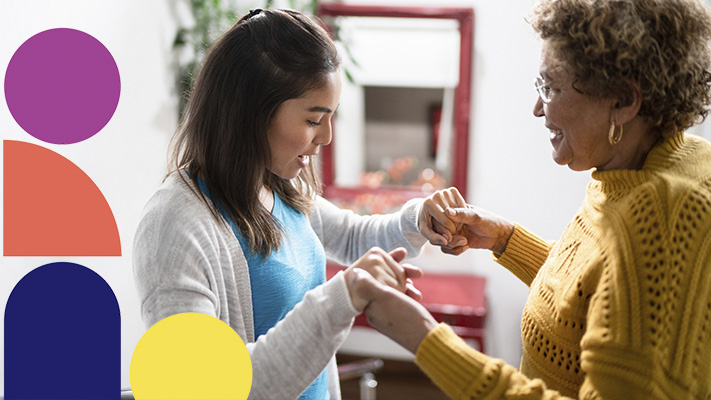The freedom to make decisions regarding our lives is a human right. Choosing how we live, look, work and play are all choices that reflect us as individuals and highlight what’s important to us. Adults without disabilities often take this freedom of choice for granted.
However, for people with disabilities, it can be different.
Despite being capable of making decisions, people with disabilities often feel like their voices are unheard. They may feel like decisions are taken out of their hands and they’re not in charge.
Not only is this frustrating and upsetting, but it also impacts on how they live their life and the experiences they have.
Why it’s important
Independent decision making enables us all to be involved in things we love. It increases our participation in communities and gives us a sense of control at work and home. It can also impact on how others perceive us and our overall health.
In fact, research indicates how important personal decision making is to both our personal wellbeing and our individual sense of identity. Even decisions that result in a negative outcome provide a learning experience which helps us grow.
The most important thing about independent decision making however is the personal feeling of dignity, self-expression and self-determination. That’s something that no one should be denied, inclusive of disabled people who may require additional assistance when making decisions.
This assistance may take many forms, including advice and support from family, partners or carers. But, one consistent factor should remain. This support should be offered in a way whereby the individual has as much choice and control over their life as possible.
Changing attitudes
While there’s some way to go, Australia is making headway in recognising the importance of independent decision making for people with disabilities.
The National Disability Strategy is a national plan for improving life for Australians with disability, their families and carers. The shared vision is for an inclusive Australian society that enables people with disabilities to fulfil their potential as equal citizens.
The strategy highlights the importance of people with disabilities participating in decisions that affect their lives along with family, friends, carers and advocates. The National Disability Strategy promotes active participation in decision making to safeguard and advance the human rights, wellbeing and interests of disabled people.
A global approach
At a UN Convention discussing the rights of persons with disabilities, it was stressed that, ‘People with disabilities have the same rights as everyone to make decisions about their lives, including the right to take risks and make mistakes.’
It was emphasised that self-determination, social justice, and social inclusion are important to all human beings. Everyone deserves dignity and respect and to be treated with honour, integrity, and courtesy.
“Respect for the freedom to make choices should be accorded to all persons with disabilities, no matter how much support they need,” said Theresia Degener from the Committee on the Rights of Persons with Disabilities (CRPD).
“People with disabilities, including those with psychosocial or cognitive impairments, must be supported in making decisions, and not have decisions made for them, even when it is thought to be in their ‘best interests’.”
The role of NDIS
On a more local level, service providers, such as NDIS, play a crucial role in empowering participants to make their own decisions and live independent lives as much as possible.
There are approximately 4.3 million Australians currently living with a disability, and not all of them have support. However, the NDIS is committed to bridging this gap by offering ongoing assistance, and their participant rates reflect their success to date.
Numbers of participants have risen from approximately 30,000 in mid-2016 to more than 250,000 today – an increase of more than 700 per cent in just two and a half years. 78,000 of these participants are receiving support and services for the very first time, with plans to increase this further.
Looking ahead
Within the next five years, the NDIS will provide more than $22 billion in funding a year to an estimated 500,000 Australians who have permanent and significant disability. Similarly, they’ll continue offering the same support to participants that they have to date.
This includes information and connections to services in their communities such as doctors, sporting clubs, support groups, libraries and schools, as well as information about what support is provided by each state and territory government.
The focus of the NDIS is to provide assistance and products that help a person to engage daily in the community and reach their goals. Central to the delivery of this has been, and always will be, participant choice and control.
We all deserve to live the life we want and have the right to decide how to do so.
Author – Frontline Human Resources



